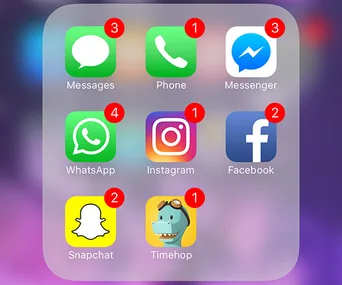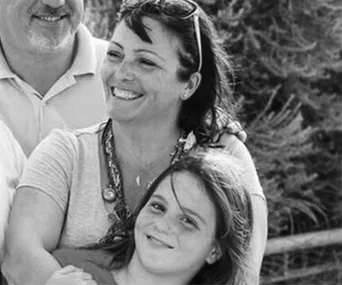When you send your child off to school, you’re always a little anxious. Will they have a good time? Will they miss you too much? Will they miss you at all? Are they ready? Will the other kids be nice to them?
Sure, we were all teased as kids to some degree, it’s an unfortunate part of growing up, but some get it far worse than others. Often, the victim is chosen for no logical reason—they’re just… there—but it can have devastating consequences. As a parent, there’s a pervasive dread your little one, your smart, happy bundle of joy, could be the target.
With a degree in social work, Patricia Occelli is no stranger to the vulnerabilities of children, but that wasn’t enough to stop her own kids enduring extreme bullying when they got to school.
“I have three children, and two of them were severely bullied through school,” she told Now To Love.
“My oldest, who’s 23 now, actually underwent a lot of physical violence in year 5. The kid who was hurting him had a lot of problems in his home, things like domestic violence, and we were all aware of that.”
Studies show children who bully are more likely to come from families who use authoritarian parenting techniques, experience abuse or neglect themselves or see violent behaviour between loved ones. And as upsetting as that is, what do you do with your child if they’re being taunted and punched?
Patricia’s son ended up changing schools and it seemed like the right choice; he made friends quickly and he wasn’t overwhelmed by the new curriculum.
“The school was years 5 to 12 and he was doing great, but then in high school the boys started to go through a hormonal change,” she explained.
“They needed to establish a pecking order and my son—my strong, charismatic outgoing son—was at the bottom.
“He would get caught up emotionally and just couldn’t brush it off. He came to me and said, ‘Mum, what do you do when this happens to you?’ and started to explain everything that was happening at school.”
As heartbreaking as it was to hear, Patricia went into action and once the teachers were looped in, they were able to launch a coordinated response with the parents of the bullies and—as life is wont to do—everyone moved on.
When her son got to year 11 and 12, he used to express the pain of his bullying all those years ago.
“They were his friends, you know?” Patricia explained. “It really hurt him, but by painting he was able to explore that suffering and unload a lot of hurt.”
His therapeutic experience with art spurred the idea to encourage all kids, whether they were bullied or not, to use creativity to understand and challenge bullying.
Expressing pain through art
As CEO of Interrelate, a not-for-profit provider of relationship services that specialises in supporting parents and children, Patricia had the perfect platform.
“I saw how much it helped him, so we launched an annual ‘Say No To Bullying’ poster Competition, which coincides with the National Day Of Action Against Bullying And Violence every year,” Patricia told Now To Love.
“It’s a way to talk about bullying and get it out in the open, but still ensure kids are having fun.
“We really want to change the culture of bullying in schools as well as the way teachers talk about it.”
Now in its sixth year, the competition has grown from around seven thousand kids to over 30,000 primary school students participating.
“After we chose last year’s winner, we actually discovered she’d experienced extreme bullying which had resulted in significant anxiety and she’d seen a psychologist for six months to help,” Patricia divulged.

Patricia with a previous winner of the competition.
“Her mum told us how much the whole experience had helped, had given her confidence.”
The paintings also prove how influenced children are by the negative experiences around them.
“One year, we were inundated with really dark paintings—heavy themes of death and suicide—so we contacted the school to let them know and offer grief support,” Patricia said.
“In that case, the school already knew about it and told us there’d been a recent suicide in the area. Even though it was something that had happened to an older child, it shows how much the little ones are still affected by it.”
This year, Patricia expects to see a lot of pictures inspired by Ferdinand, the animated bull who defies existing stereotypes that bulls are stubborn and cruel.
“We normally receive quite a lot of bull submissions, because of the bull – bully association, but this year the movie has a lot of parallels to our messaging,” Patricia tells Now To Love.
“He’s a sweet sweet and caring protagonist and teaches the other bulls they don’t have to join in if they see people hurting someone else, something we really emphasise when talking to primary school kids.
“It’s nice to be changing the image of the mean, stubborn bull with Ferdinand,” she added with a laugh.
How to talk to your child about bullying
With bullying sometimes causing tangible and long-term problems, like depression or withdrawal from friends, families and school, it’s important to know how to talk to your children about it.
“It’s really important to have an open, comfortable dialogue about bullying,” Patricia explained. “Kids need to know if they tell you something it won’t have a negative impact on them.”
“If they tell you they’re being bullied and your first reaction is, ‘Fine, give me your phone’, they’re not going to tell you again.”
Cyber bullying is such an incessant, invasive form of harassment, and for most parents, it’s so removed from our experiences, it can be hard to fully comprehend just how damaging it can be. Since it can, and often does, bleed into childrens’ home lives, Patricia explains it’s important to treat all their forms of technology the same.
“You need safeguards on everything, whether it’s a phone, iPad or computer, to stop bullying, grooming and anything else.”
“Consider using protective mechanisms that can stop messaging and images if it detects sexual or toxic content.”
She adds that we’re all stringent with teaching little ones about “stranger danger” and the same thing needs to been done with devices.
“You need to teach your kids how to protect themselves and parents should also be aware of what information they’re sharing online,” she adds.
“It’s not just name, age etc.—pictures can give away locations and habits as well. There’s bad people out there and we all want to keep our kids safe.”
Above all, Patricia stresses it’s important parents don’t overreact to the information their kids do share.
“Make sure you support them and treat the situation rationally.”
Interrelate create fantastic educational programs for schools, parents teachers and kids and our favourite bull, Ferdinand arrives on Digital, Blu-ray™, and DVD from March 21st.



